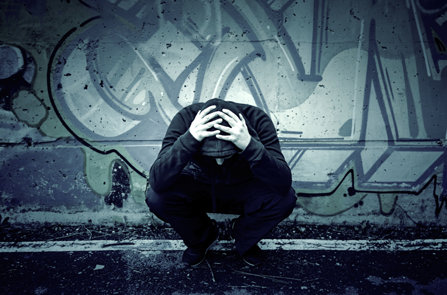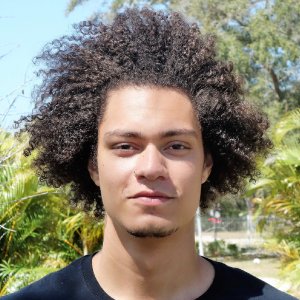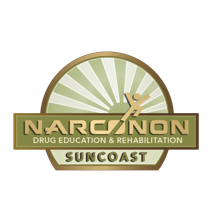My Mom Was Right, All Along…

“Your family is always going to be there for you. Your friends are just temporary.”
My mother always said that to me when I was a kid. I never really believed her. For a long time, I had always thought that it was just me and everything that I wanted. Even though I spent every waking moment with my friends, and next to no time with my family, my family was somehow there when my friends weren’t.
When I turned 18, I went to college. I dropped out within 2 semesters. I sold drugs and worked at restaurants to support myself. I had mostly disconnected from my family for 5 years. I never talked to them, except when I needed drug money. They would want to come and visit and I would always make some sort of excuse as to why I wouldn’t be able to see them, and if I couldn’t deter them, I would just shut my phone off entirely. I could never really understand why they would want to spend time with me. It didn’t really matter why though; I was too busy getting high with my “friends.”
I thought that I had friends. I thought I had a lot of them. I thought they were real friends. We had similar goals and purposes. We sold drugs together, we partied together, we got with the same girls and we played the same games. I had no idea that the games we were playing were so detrimental to my survival, but my family knew. Anytime that my family was able to get a hold of me, they warned me of my “friends” and how terrible they were for me. I would just ignore them.
One day I actually saw how terrible my friends really were. I was dope sick and I needed drugs. I went over to my friend’s apartment and I told him that I didn’t have any money, but that I needed some pills. He didn’t want to give them to me. I told him that I needed them because I was really sick and he said that he didn’t care. I went over to another friend’s house. And then another. By the end of the night, I had no drugs and no friends. I ended up calling my family and asking for money. I said that I needed $500 for rent. My family said, “no, we’re not going to pay your rent, but we can give you $20.” I argued with them and shamefully accepted a bank transfer of $20. I walked to the gas station and bought $10 worth of Old English, a blunt, and a dime bag of weed from a local dealer.
I cracked open the Old English and walked down the street and made my way to the park. I laid down on the slide and started to split the blunt. I filled it and thought about the money that my parents had just given me. I felt disgusted with myself. I licked the blunt and sealed it. I thought about all the money my parents had spent on me. I threw the empty bottle of Old English and cracked open the next one. I lit the blunt and remembered an argument that I got into with my mother and father. I was in the second or third grade. I told my parents that they were controlling and they don’t let me have any friends, and that’s why I’m always in trouble at school. My mother said:
“ Your family is always going to be there for you. Your friends are just temporary. You can have friends, we’re not stopping you from doing that, we just want you to know how important family is. We’re a military family, and we move from place to place. Your friends are always just going to be your friends. You’ll make friends, and you’ll lose some, but your family is always going to be there for you.”
I looked back at all the times I had done my family wrong and felt sick to my stomach. I thought about the image I was portraying to my brother and the path he was starting to go down and I wanted to cry. I looked back at all the people that had come and gone from my life and felt nothing. I walked back to my apartment. I took my girlfriend’s bank card from her wallet, and I drove her car to Walmart. I pulled out $80. I bought an Oxy 80 and another dime bag of weed. I sniffed the pill in the parking lot, drove the car to the apartment and walked over to the park again. I rolled up and smoked the blunt, completely unfazed with what I had just done to my girlfriend. I thought about all the missed time I had accumulated from my family. The guilt had finally set in, and it seemed to make sense.
People had come in my life, and they had left. There were good times, where my friends and I did productive things like volunteering and helping out the community, and there were bad times where my friends and I sold drugs, stole from people and terrorized the community. Sifting through those moments, the magnitude and degree to which I could feel emotion was minute in comparison to my family. I ran through all the experiences I had with my family and felt a roller coaster ride of emotion. I passed out on the slide around 4 or 5 am. I woke up to see that I had a few missed calls and texts. The calls were too much to confront at the time, so I checked the texts.

Girlfriend: “What is wrong with you?! You owe me $80!”
Friends: “Yo, I just got some pills in. Hit me up. Party tonight at Park Place.”
Mother: “Happy Birthday, hope you’re okay. Give us a call whenever you can, we’re free all day. If I don’t answer just text me and I can step outside of work real quick and call you back. Mahal kita anak (I love you, my child).”
Several years later, after a few years of being sober under my belt, I have a completely different viewpoint of family and friends. My family has always been there for me. I have a couple friends that have come and gone, a few that have stayed, but my family has always been there for me.
I guess my mom was right all along.
P.F.—Narconon Graduate and now Narconon Staff Member


